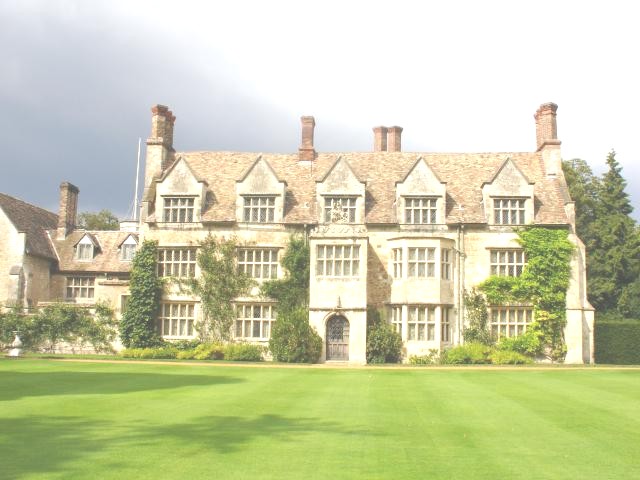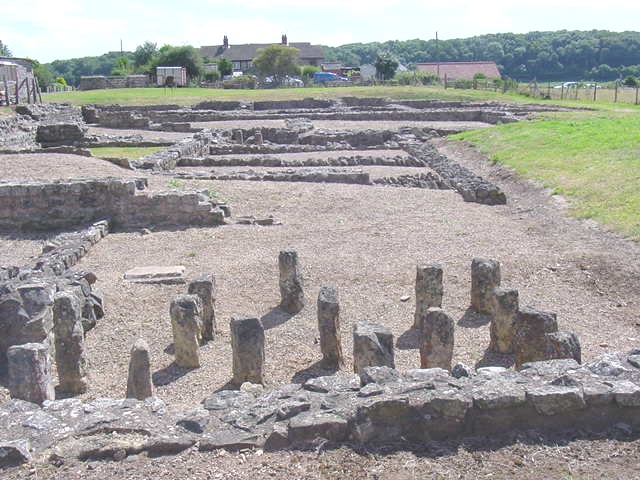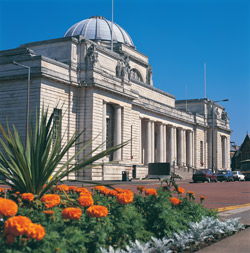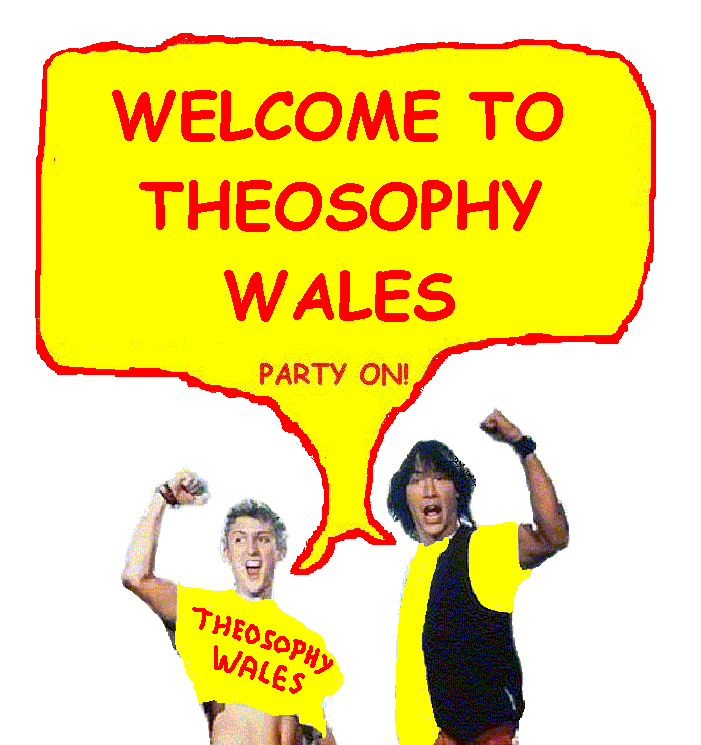

____________
THE
OF
THEOSOPHY
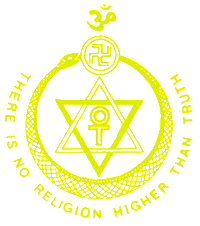
A Definitive Work on Theosophy
By
William Quan Judge
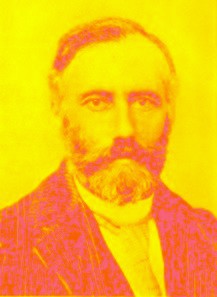
CHAPTER 6
Kama – Desire
The author of Esoteric Buddhism -- which book ought to be consulted by
all students of Theosophy, since it was made from suggestions given by some of
the Adepts themselves -- gave the name Kama rupa to the fourth principle of
man's constitution. The reason was that the word Kama in the Sanskrit language
means "desire," and as the idea intended to be conveyed was that the
fourth principle was the "body or mass of desires and passions," Mr.
Sinnett added the Sanskrit word for body or form which is Rupa, thus making the
compound word Kamarupa.
I shall call it by the English equivalent -- passions and desires --
because those terms exactly express its nature. And I do this also in order to
make the sharp issue which actually exists between the psychology and mental
philosophy of the west and those of the east. The west divides man into
intellect, will, and feeling, but it is not understood whether the passions and
desires constitute a
principle in themselves or are due entirely to the body. Indeed, most
people consider them as being the result of the influence of the flesh, for
they are designated often by the terms "desires of the flesh" and
"fleshly appetites."
The ancients, however, and the Theosophists know them to be a principle
in themselves and not merely the impulses from the body. There is no help to be
had in this matter from the western psychology, now in its infancy and wholly
devoid of knowledge about the inner, which is the psychical, nature of man, and
from this point there is the greatest divergence between it and Theosophy.
The passions and desires are not produced by the body, but, on the
contrary, the body is caused to be by the former. It is desire and passion which
caused us to be born, and will bring us to birth again and again in this body
or in some other.* It is by passion and desire we are made to evolve through
the mansions
of death called lives on earth. It was by the arising of desire in the
unknown first cause, the one absolute existence, that the whole collection of
worlds was manifested, and by means of the influence of desire in the now
manifested world
is the latter kept in existence.
NOTE
[*W Q Judge, in The Theosophical Forum, June, 1894,
page 12, corrected this to: "in some body on this earth or another
globe."]
This fourth principle is the balance principle of the whole seven. It
stands in the middle, and from it the ways go up or down. It is the basis of
action and the mover of the will. As the old Hermetists say: "Behind will
stands desire."
For whether we wish to do well or ill we have to first arouse within us
the desire for either course. The good man who at last becomes even a sage had
at one time in his many lives to arouse the desire for the company of holy men
and to keep his desire for progress alive in order to continue on his way.
Even a Buddha or a Jesus had first to make a vow, which is a desire, in
some life, that he would save the world or some part of it, and to persevere with
the desire alive in his heart through countless lives. And equally so, on the
other hand, the bad man life after life took unto himself low, selfish, wicked
desires, thus
debasing instead of purifying this principle. On the material and
scientific side of occultism, the use of the inner hidden powers of our nature,
if this principle of desire be not strong the master power of imagination
cannot do its work, because though it makes a mould or matrix the will cannot
act unless it is moved, directed, and kept up to pitch by desire.
The desires and passions, therefore, have two aspects, the one being low
and the other high. The low is that shown by the constant placing of the
consciousness entirely below in the body and the astral body; the high comes from
the influence of and aspiration to the trinity above, of Mind, Buddhi, and
Spirit. This fourth principle is like the sign Libra in the path of the Sun
through the Zodiac; when the Sun (who is the real man) reaches that sign he
trembles in the balance. Should he go back the worlds would be destroyed; he
goes onward, and the whole human race is lifted up to perfection.
During life the emplacement of the desires and passions is, as obtains
with the astral body, throughout the entire lower man, and like that ethereal
counterpart of our physical person it may be added to or diminished, made weak
or increased in strength, debased or purified.
At death it informs the astral body, which then becomes a mere shell;
for when a man dies his astral body and principle of passion and desire leave
the physical in company and coalesce. It is then that the term Kamarupa may be
applied, as Kamarupa is really made of astral body and Kama in conjunction, and
this joining of the two makes a shape or form which though ordinarily invisible
is material and may be brought into
visibility. Although it is empty of mind and conscience, it has powers
of its own that can be exercised whenever the conditions permit.
These conditions are furnished by the medium of the
spiritualists, and in every seance room the astral shells of deceased
persons are always present to delude the sitters, whose powers of
discrimination have been destroyed by wonderment.
It is the "devil" of the Hindus, and a worse enemy the poor
medium could not have. For the astral spook -- or Kamarupa -- is but the mass
of the desires and passions abandoned by the real person who has fled to
"heaven" and has no concern with the people left behind, least of all
with seances and mediums.
Hence, being devoid of the nobler soul, these desires and passions work
only on the very lowest part of the medium's nature and stir up no good
elements, but always the lower leanings of the being. Therefore it is that even
the
spiritualists themselves admit that in the ranks of the mediums there is
much fraud, and mediums have often confessed, "the spirits did tempt me
and I committed fraud at their wish."
This Kamarupa spook is also the enemy of our civilization, which permits
us to execute men for crimes committed and thus throw out into the ether the
mass of passion and desire free from the weight of the body and liable at any
moment to be attracted to any sensitive person. Being thus attracted, the
deplorable images of crimes committed and also the picture of the execution and
all the accompanying curses and wishes for revenge are implanted in living
persons, who, not seeing the evil, are unable to throw it off. Thus crimes and
new ideas of crimes are wilfully propagated every day by those countries where
capital
punishment prevails.
The astral shells together with the still living astral body of the
medium, helped by certain forces of nature which the Theosophists call
"elementals," produce nearly all the phenomena of non-fraudulent
spiritualism. The medium's
astral body having the power of extension and extrusion forms the
framework for what are called "materialized spirits," makes objects
move without physical contact, gives reports from deceased relatives, none of
them anything more than
recollections and pictures from the astral light, and in all this using
and being used by the shells of suicides, executed murderers, and all such
spooks as are naturally near to this plane of life. The number of cases in
which any communication comes from an actual spirit out of the body is so small
as to be
countable almost on one hand. But the spirits of living men sometimes,
while their bodies are asleep, come to seances and take part therein.
But they cannot recollect it, do not know how they do it, and are not
distinguished by mediums from the mass of astral corpses. The fact that such
things can be done by the inner man and not be recollected proves nothing
against these theories, for the
child can see without knowing how the eye acts, and the savage who has
no knowledge of the complex machinery working in his body still carries on the
process of digestion perfectly. And that the latter is unconscious with him is
exactly in line with the theory, for these acts and doings of the inner man are
the unconscious actions of the subconscious mind.
These words "conscious" and "subconscious" are of
course used relatively, the unconsciousness being that of the brain only. And
hypnotic experiments have conclusively proved all these theories, as on one day
not far away will be fully admitted. Besides this, the astral shells of
suicides and executed criminals are the most coherent, longest lived, and
nearest to us of all the shades of hades, and hence must, out of the necessity
of the case, be the real "controls" of the seance room.
Passion and desire together with astral model-body are common to men and
animals, as also to the vegetable kingdom, though in the last but faintly
developed. And at one period in evolution no further material principles had
been developed, and all the three higher, of Mind, Soul, and Spirit, were but
latent. Up to this point man and animal were equal, for the brute in us is made
of the passions and the astral body. The development of the germs of
Mind made man because it constituted the great differentiation. The God within
begins with Manas or mind, and it is the struggle between this God and the
brute below which Theosophy speaks of and warns about. The lower principle is
called bad because by comparison with the higher it is so, but still it is the
basis of action.
We cannot rise unless self first asserts itself in the desire to do
better. In this aspect it is called rajas or the active and bad quality, as
distinguished from tamas, or the quality of darkness and indifference. Rising
is not possible unless rajas is present to give the impulse, and by the use of
this principle of passion all the higher qualities are brought to at last so
refine and elevate our desires that they may be continually placed upon truth
and spirit. By this Theosophy does not teach that the passions are to be
pandered to or satiated, for a more pernicious doctrine was never taught, but
the injunction is to make use of the activity given by the fourth principle so
as to ever rise and not to fall under the dominion of the dark quality that
ends with annihilation, after having begun in selfishness and indifference.
Having thus gone over the field and shown what are the lower principles,
we find Theosophy teaching that at the present point of man's evolution he is a
fully developed quaternary with the higher principles partly developed. Hence
it is taught that today man shows himself to be moved by passion and desire.
This is
proved by a glance at the civilizations of the earth, for they are all
moved by this principle, and in countries like France, England, and America a
glorification of it is exhibited in the attention to display, to sensuous art,
to struggle for power and place, and in all the habits and modes of living
where the gratification of the senses is sometimes esteemed the highest good.
But as Mind is being evolved more and more as we proceed in our course
along the line of the race development, there can be perceived underneath in
all countries the beginning of the transition from the animal possessed of the
germ of real mind
to the man of mind complete. This day is therefore known to the Masters,
who have given out some of the old truths, as the "transition
period." Proud science and prouder religion do not admit this, but think
we are as we always will be.
But believing in his teacher, the theosophist sees all around him the
evidence that the race mind is changing by enlargement, that the old days of
dogmatism are gone and the "age of inquiry" has come, that the
inquiries will grow louder year by year and the answers be required to satisfy
the mind as it grows more
and more, until at last, all dogmatism being ended, the race will be
ready to face all problems, each man for himself, all working for the good of
the whole, and that the end will be the perfecting of those who struggle to
overcome the brute. For these reasons the old doctrines are given out again,
and Theosophy asks every one to reflect whether to give way to the animal below
or look up to and be governed by the God within.
A fuller treatment of the fourth principle of our constitution would
compel us to consider all such questions as those presented by the wonder
workers of the east, by spiritualistic phenomena, hypnotism, apparitions,
insanity, and the
like, but they must
be reserved for separate handling.
ARGUMENTS
SUPPORTING REINCARNATION
DIFFERENTIATION OF SPECIES MISSING LINKS
PSYCHIC
LAWS, FORCES, AND
PHENOMENA
PSYCHIC
PHENOMENA AND SPIRITUALISM
______________________
THE
OF
THEOSOPHY

Find out more about
Theosophy with these links
The Cardiff Theosophical Society Website
The National
Wales Theosophy Website
Theosophy
Wales Youtube Channel
Ten Benefits of Studying the Blavatskyan
Theosophical Teachings
Studying
the Blavatskyan Theosophical teachings offers numerous benefits that can
greatly enrich one's understanding of spirituality, philosophy, and the nature
of reality. Theosophy, as defined by the
writings of Helena Petrovna Blavatsky, has had a profound impact on the
spiritual and philosophical landscape of the modern world. Blavatsky's teachings
draw from a wide range of religious and philosophical traditions, including
Hinduism, Buddhism, and Western esotericism, and present a comprehensive
worldview that addresses fundamental questions about existence, consciousness,
and the cosmos.
Here
are ten benefits of studying the Blavatskyan Theosophical Teachings
1.
Exploration of Esoteric Wisdom
One
of the primary benefits of studying the Blavatskyan Theosophical teachings is
the opportunity to explore esoteric wisdom that is often not readily accessible
in mainstream religious or philosophical traditions. Blavatsky's writings delve
into the esoteric teachings of ancient cultures and mystery schools, shedding
light on profound spiritual truths that have been passed down through the ages.
By delving into these esoteric teachings, students of Theosophy can gain
insights into the nature of consciousness, the structure of the cosmos, and the
evolution of the soul or immortal self.
2.
Synthesis of Eastern and Western Philosophy
Blavatsky's
Theosophical teachings synthesize elements of Eastern and Western philosophy,
offering a comprehensive framework that integrates concepts from diverse
cultural and religious traditions. This synthesis provides students with a
broader perspective on philosophical and spiritual thought, allowing them to
see the underlying unity of seemingly disparate belief systems. By studying
Theosophy, individuals can gain a deeper appreciation for the universal
principles that underlie all wisdom traditions, fostering a sense of unity and
interconnectedness with the world's spiritual heritage.
3.
Understanding of Universal Brotherhood
Central
to Blavatsky's Theosophical teachings is the principle of universal
brotherhood, which emphasizes the essential unity of all beings and the interconnectedness
of life. By studying Theosophy, individuals can develop a profound
understanding of the interconnected nature of existence, recognizing that all
living beings are fundamentally linked and that compassion and empathy are
essential for the evolution of humanity. This understanding can lead to a
greater sense of empathy, kindness, and social responsibility, fostering a more
harmonious and compassionate society.
4.
Insight into the Nature of Reality
The
Blavatskyan Theosophical teachings offer profound insights into the nature of
reality, consciousness, and the unseen dimensions of existence. Through the
study of Theosophy, individuals can explore concepts such as the
multi-dimensional nature of the universe, the existence of subtle energy realms,
and the interconnectedness of the material and spiritual planes. This
exploration can lead to a deeper understanding of the nature of reality beyond
the limitations of the physical senses, opening up new vistas of perception and
understanding.
5.
Personal Spiritual Growth
Studying
the Theosophical teachings can be a transformative journey that facilitates
personal spiritual growth and self-discovery. Blavatsky's writings offer
practical guidance for inner development, including meditation practices, ethical
principles, and the cultivation of spiritual virtues. By applying these
teachings to their lives, individuals can experience profound personal
transformation, leading to greater self-awareness, inner peace, and a sense of
purpose and meaning.
6.
Ethical and Moral Guidance
The
Theosophical teachings provide a comprehensive ethical and moral framework that
can guide individuals in their personal and social interactions. Blavatsky
emphasizes the importance of ethical conduct, altruism, and the pursuit of
wisdom, offering practical guidance for leading a virtuous and meaningful life.
By studying Theosophy, individuals can gain clarity on moral issues, cultivate
a sense of ethical responsibility, and contribute to the greater good of
humanity.
7.
Appreciation of Comparative Religion
The
study of Theosophy encourages an appreciation of comparative religion and the
underlying unity of religious and spiritual traditions. Blavatsky's writings
explore the common threads that run through the world's religions, highlighting
universal spiritual principles that transcend cultural and historical
boundaries. By gaining a deeper understanding of comparative religion through
Theosophy, individuals can develop a more inclusive and pluralistic
perspective, fostering interfaith harmony and mutual respect.
8.
Intellectual Stimulation
The
Theosophical teachings offer a rich and intellectually stimulating framework
for exploring profound philosophical and metaphysical concepts. Blavatsky's writings
encompass a wide range of subjects, including cosmology, metaphysics, ancient
wisdom, and the evolution of consciousness, providing ample material for
intellectual inquiry and contemplation. By engaging with these teachings,
individuals can expand their intellectual horizons, develop critical thinking
skills, and gain a deeper understanding of the fundamental questions that have
intrigued philosophers and mystics throughout history.
9.
Healing and Reconciliation
The
Theosophical teachings offer insights into the nature of healing and
reconciliation, both on a personal and collective level. Blavatsky's writings
delve into the esoteric principles of healing, the nature of disease, and the
interconnectedness of mind, body, and spirit. By studying Theosophy,
individuals can gain a deeper understanding of holistic healing modalities, the
power of the mind in influencing health, and the potential for spiritual
transformation through the healing process. Furthermore, the Theosophical
emphasis on universal brotherhood and compassion can contribute to the
reconciliation of divisions and conflicts within society, fostering a more
harmonious and peaceful world.
10.
Contribution to Global Transformation
Finally,
studying the Blavatskyan Theosophical teachings can empower individuals to
contribute to the ongoing global transformation towards a more enlightened and
compassionate world. Blavatsky's vision of a spiritually awakened humanity,
working towards the betterment of all beings, inspires individuals to engage in
positive action and service to humanity. By embodying the principles of
Theosophy in their lives, individuals can become agents of positive change,
working towards the realization of a more just, peaceful, and sustainable
world.
In
summary, the study of the Blavatskyan Theosophical teachings offers a wide
range of benefits, ranging from personal spiritual growth to the potential for
global transformation. By delving into the esoteric wisdom, ethical principles,
and philosophical insights of Theosophy, individuals can expand their
understanding of the nature of reality, cultivate compassion and empathy, and
contribute to the evolution of humanity towards a more harmonious and
enlightened future. As the Theosophical teachings continue to inspire and guide
seekers of truth and wisdom, their profound impact on individuals and society
is likely to endure for generations to come.
If you run a Theosophy Group, please feel free
to use any of the material on this site
The Most Basic Theosophy
Website in the Universe
A quick overview of Theosophy
and the Theosophical Society
If you run a Theosophy Group you
can use this as an introductory handout.
Theosophy Cardiff’s Instant Guide
One liners and quick explanations
H P Blavatsky is
usually the only
Theosophist that
most people have ever
heard of. Let’s
put that right
The Voice of the Silence Website
An Independent Theosophical Republic
Links to Free Online Theosophy
Study Resources; Courses, Writings,
The main criteria
for the inclusion of
links on this
site is that they have some
relationship
(however tenuous) to Theosophy
and are
lightweight, amusing or entertaining.
Topics include
Quantum Theory and Socks,
Dick Dastardly and Legendary Blues Singers.
A selection of
articles on Reincarnation
Provided in
response to the large
number of
enquiries we receive at
Cardiff
Theosophical Society on this subject
The Voice of the Silence Website
This is for everyone, you don’t have to live
in Wales to make good use of this Website
No Aardvarks were harmed in the
The Spiritual Home of Urban Theosophy
The Earth Base for Evolutionary Theosophy
Theosophy Birmingham (England)
The Birmingham Annie Besant Lodge
Theosophy Cardiff has links with the
_______________________
Your Own
Theosophy Group Starts Here
A Guide to
starting your own
Theosophy Group
& of course
you don’t need to live in Wales
to take advantage
of this guide
__________________
The Theosophy Cardiff
Glastonbury Pages
The Theosophy Cardiff Guide to
The Theosophy Cardiff Guide to
The Theosophy Cardiff Guide to
The Terraced Maze of Glastonbury Tor
Glastonbury and
Joseph of Arimathea
The Grave of King Arthur & Guinevere
Views of Glastonbury High Street
The Theosophy Cardiff Guide to
__________________
Camberley,
Surrey, England GU15 2LF
Concerns about the
fate of the wildlife as
Tekels Park is to
be Sold to a Developer
Concerns are raised
about the fate of the
wildlife as The Spiritual
Retreat,
Tekels Park in
Camberley, Surrey,
England is to be
sold to a developer.
Tekels Park is a 50
acre woodland park,
purchased for the Adyar
Theosophical
It doesn’t require a Diploma in
Finance
and even someone with a Diploma
in
Astral Travel will know that
this is a
bad time economically to sell Tekels Park
In addition to
concern about the park,
many are worried about the
future
of the Tekels Park
Deer as they
Confusion as the Theoversity moves
out of
Tekels Park to Southampton,
Glastonbury &
Chorley in Lancashire while the
leadership claim
that the Theosophical Society will
carry on using
Tekels Park despite its sale to a developer
Anyone planning a
“Spiritual” stay at the
Tekels Park Guest
House should be aware of the sale.
Future of Tekels Park Badgers in Doubt
Party On! Tekels Park Theosophy NOT
Tekels Park & the Loch Ness Monster
A Satirical view of
the sale of Tekels Park
in Camberley,
Surrey to a developer
The Toff’s Guide to the Sale of Tekels Park
What the men in top
hats have to
say about the sale
of Tekels Park
____________________
A B C D EFG H IJ KL M N OP QR S T UV WXYZ
Complete Theosophical Glossary in Plain Text Format
1.22MB
Theosophy Cardiff Nirvana Pages
Quick Explanations with Links to More Detailed Info
What is Theosophy ? Theosophy Defined (More Detail)
Three Fundamental Propositions Key Concepts of Theosophy
Cosmogenesis Anthropogenesis Root Races
Ascended Masters After Death States
The Seven Principles of Man Karma
Reincarnation Helena Petrovna Blavatsky
Colonel Henry Steel Olcott William Quan Judge
The Start of the Theosophical
Society
History of the Theosophical
Society
Theosophical Society Presidents
History of the Theosophical
Society in Wales
The Three Objectives of the
Theosophical Society
Explanation of the Theosophical
Society Emblem
The Theosophical Order of
Service (TOS)
Glossaries of Theosophical Terms
by
Annie Besant
THE BUDDHIC AND
NIRVANIC PLANES
______________________
Annie Besant Visits Cardiff 1924
An Outstanding
Introduction to Theosophy
By a student of
Katherine Tingley
Elementary Theosophy Who is the Man? Body and Soul
Body, Soul and Spirit Reincarnation Karma
Reincarnation
This guide has been included in response
to the number of enquiries we receive on this
subject at Cardiff
Theosophical Society
From A Textbook
of Theosophy By C W Leadbeater
How We Remember our Past Lives
Life after Death & Reincarnation
The Slaughter of the
a great demand by the public for lectures on
Reincarnation
What Theosophy Is From the Absolute to Man
The Formation of a Solar System The Evolution of Life
The Constitution of Man After Death Reincarnation
The Purpose of Life The Planetary Chains
The Result of Theosophical Study
Quotes from the Writings of
Helena Petrovna Blavatsky
The Secret Doctrine , Volume 2, Page 100
It is only by the attractive force of the contrasts
that the two opposites — Spirit and Matter — can be cemented together on
Earth, and, smelted in the fire of self-conscious experience and suffering, find
themselves wedded in Eternity.
The Secret Doctrine , Volume 2, Page 108
It is the motive, and the motive alone, which makes
any exercise of power become black, malignant, or white, beneficent Magic. It is
impossible to employ spiritual forces if there is the slightest tinge of
selfishness remaining in the operator .... The powers and forces of animal
nature can equally be used by the selfish and revengeful, as by the unselfish
and the all-forgiving; the powers and forces of spirit lend themselves only to
the perfectly pure in heart — and this is Divine Magic.
Isis Unveiled, Volume 1, Page 36
The Secret Doctrine , Volume 3, Page 14
Even ignorance is better than
Head-learning with no Soul-wisdom to illuminate and guide it.
The Voice of
the Silence, Page 43
Annotation - The Path, May, 1888
The Secret Doctrine , Proem [Volume 1], Page 35
Isis Unveiled, Volume 1, Page 210
The Secret Doctrine , Volume 1, Page 134
incarnation of
his God; and when the sense of personal responsibility will be so
Isis Unveiled,
Volume 2, Page 374
It is the
motive, and the motive alone, which makes any exercise of power become
The Secret Doctrine , Volume 2, Page 498
Isis Unveiled, Volume 1, Page 36
From strength to
strength, from the beauty and perfection of one plane to the
greater beauty
and perfection of another, with accessions of new glory, of fresh
knowledge and
power in each cycle, such is the destiny of every Ego, which thus
becomes its own
saviour in each world and incarnation.
The Key to
Theosophy, Page 105
The Secret Doctrine , Volume 1, Page 69
The mind
receives indelible impressions even from chance acquaintance or persons
Isis Unveiled,
Volume 1, Page 311
The Key to Theosophy, Page 228
An Outline of Theosophy
Charles Webster Leadbeater
Theosophy - What it is How is it Known? The Method of Observation
General Principles The Three Great Truths The Deity
Advantage Gained from this
Knowledge The Divine Scheme
The Constitution of Man The True Man Reincarnation
The Wider Outlook Death Man’s Past and Future
Cause and Effect What Theosophy does for us
Try these if you are looking for a local
Theosophy Group or Centre
UK Listing of Theosophical Groups
Please tell us about your UK Theosophy Group
___________________
into categories
and presented according to relevance of website.
Web Directory
- Add Link - Submit Article - Online Store - Forum
Cardiff, Wales, UK, CF24 – 1DL
_________________
Wales Picture Gallery
The Great Orme
llandudno
Promenade
Great Orme
Tramway
New Radnor
Blaenavon
Ironworks
Llandrindod
Wells
Cardiff
Theosophical Society in Wales
Cardiff, Wales, UK. CF24 – 1DL
Presteign
Railway
Caerwent Roman Ruins
Denbigh
Nefyn
Penisarwaen
Cardiff
Theosophical Society in Wales
Cardiff, Wales, UK. CF24 – 1DL












